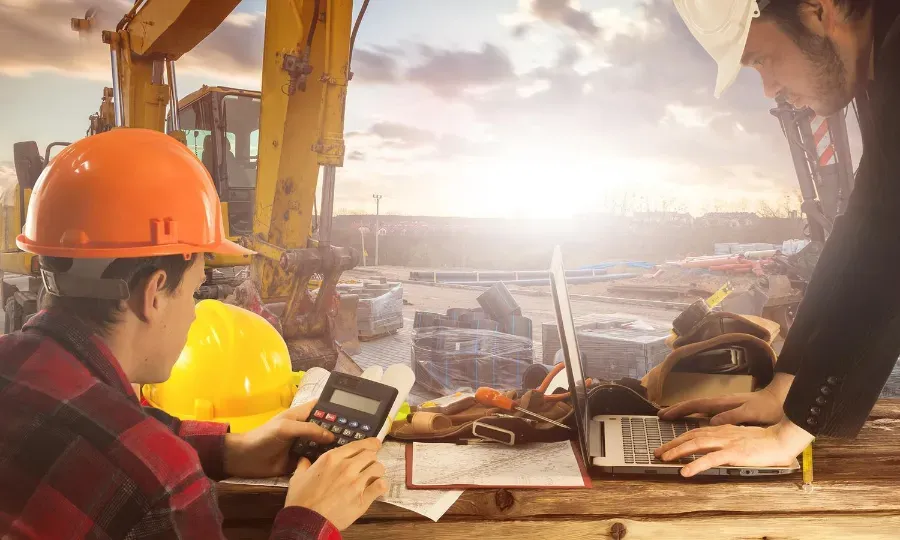Big Data Can Help Construction Companies Deliver Projects On Time

Big data offers possibilities for any industry and any organisation around the world. Let’s therefore look at an industry that at first sight would not come to mind when thinking of big data: the construction industry. The construction of new buildings around the world always creates an intense period for those involved. Ranging from a small house to a large skyscraper or an airport, construction involves many different stakeholders and a lot of different materials that have to work and fit together in a small time-frame. Project management skills are therefore very important for those involved and in order to manage a project correctly, information is required.
A research by ConstrucTech showed however, that one of the greatest challenges in managing a project correctly are finding the right information when it is needed, collecting the right information from different construction sites and managing the distribution of information to other parties. The causes for these challenges were among others, according to the survey, low interoperability between project-management technologies, inefficient workflow processes and data volumes and file sizes that were hard to manage. Leveraging the vast amount of data can be an asset that can greatly benefit construction companies.
Accurately Budget for New Projects
First of all, big data allows projects to be kept on time and on budget by providing insights based on data generated by various sources, including job sites (for the required personnel), availability and prices of materials, suppliers, human resources systems, and communication. Site information for example can help constructors to better plan suppliers in real-time, create better routings and save money on fuel.
Data mining can help construction managers manage their stakeholders and all required materials for a project. Construction managers can then use the information in their budget tools to make the best decision for the project. In addition, the information can be updated in real-time, giving the construction manager the latest information in order to make an accurate and swift decision when necessary.
Reducing Project Risks
One of the major problems for construction companies is the risk that the project is delayed, which can cost them a lot of money. Often construction companies have to deal with financial penalty clauses in case deadlines are missed. A construction project deals with a vast array of stakeholders that each can cause a delay.
Delays in the project can be caused because the drawings take too much time to deliver, the information used is outdated or contain inaccuracies caused by human errors. There are a lot of moments when a project can be delayed, especially with the rise of global projects – where the architect lives in New York and deals with contractors from India to build a project in the Middle East. On top of that, increased competition and skill shortages can be a threat to complete the project on time.
Sharing data among all dispersed team members can help to counter these problems. Giving geographically dispersed team members real-time and shared access to the same documents will help minimize delays. Documents such as drawings, models, contracts and procurement materials can be indexed and made searchable for anyone involved. This will result in increased productivity and reduced document turnaround time, which ultimately improves the bottom-line. In addition it will ensure that all team member use the same information to do their work.
Better Organised Construction Sites
Site locations are often small spaces with a lot of people and cars on a daily basis. Using sensors in the cars, machines and trucks, combined with the schedule of the project as well as traffic information and routing, an algorithm can determine the best routings for the different cars, machines and trucks to optimize efficiency at the production site and decrease fuel costs as well as waiting times. This is especially valuable for very large construction sites or even more important for extremely small construction site where there is only space for one truck. In such case delays can occur easily.
In addition, construction companies use a lot of equipment. When equipment is equipped with sensors, the geo-location can be easily identified, as well as status of the products. This data can tell the construction company how the tools are used and when they need to be replaced by new equipment, which is immediately ordered and delivered. This will save construction companies a lot of money on inventory and equipment as well as minimize delays because the right equipment is not available.
Machines can also be equipped with sensors and these sensors have the potential to flag abnormal events more quickly and to proactively take corrective actions on potential machine performance problems. Machine owners can be notified before problems arise and the maintenance team will know directly what is wrong, which spare parts are required and this will reduce downtime of the machine.
The benefits for construction companies are vast. Fortunately, there are already construction companies that are working on a big data strategy. A good example is the construction company Nick Savko & Sons, Inc., a Columbus, Ohio site-development company, that already uses telematics to improve efficiency of operations. They used GPS devices to monitor data such as idle time, cycle times, productivity and more and installed this on the equipment necessary to complete earthmoving of the SX Railroad's $175-million transshipment terminal. All information could be monitored from a distance and it allowed them to complete the project a month ahead of schedule. It is time for other construction companies, small and big, to also see these benefits and let big data help them to deliver projects on time.





